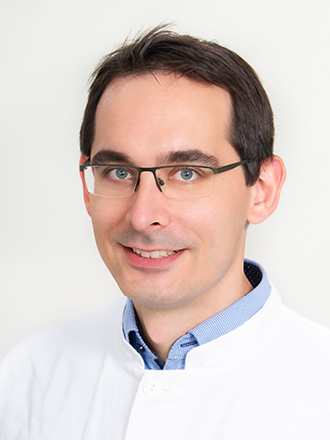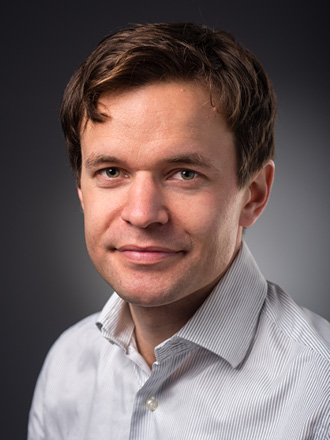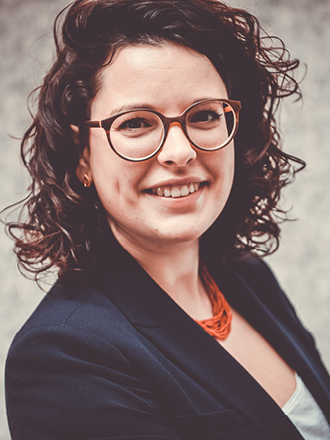Klaus Goerttler Session
Thursday, September 29th, 2022, at 3:00 pm
Chair: Janine Kemming
In this year’s Klaus-Goerttler session Bertram Bengsch from Freiburg and Asbjørn Christophersen from Oslo will share some of their exciting data on CD8+ T cell phenotyping in the context of autoimmunity and infectious diseases using diverse flow and mass cytometry techniques. Also this year’s winner of the Klaus-Goerttler award, Elisa Rosati, will be revealed! Make sure to join for this session full of cutting-edge research carried out using state-of-the-art cytometry techniques!

Enolase represents a metabolic checkpoint controlling the differential exhaustion of virus-specific CD8+ T cells in HBV versus HCV
Bengsch Lab Clinic for Internal Medicine II, University Medical Center Freiburg
Exhausted T cells with limited effector function accumulate in patients with chronic infections and cancer. Metabolic regulation is a contributing mechanism to dysfunction. In Hepatitis -B and -C virus infection (cHBV/cHCV), different subtypes of exhausted T cells have been described. To understand the metabolic programs tied into the regulation of exhausted T cells, we used metabolism-directed flow cytometry, transcriptome analysis and metabolic flux analysis to understand whether similar metabolic programs and exhaustion states are induced in virus-specific T cells in both infections, how they are affected by antiviral therapy, and if specific metabolic checkpoints regulate severe dysfunction.
Interestingly, we find that HBV- and HCV-specific T cells exhibit strikingly distinct metabolic profiles. HCV-specific CD8+ T cells had severe mitochondrial impairment despite enhanced glucose uptake whereas HBV-specific CD8+ T cells displayed intact metabolism. These metabolic differences were connected to severe exhaustion of HCV-specific T cells and, clinically, more severe hepatitis in our cHCV cohort. DAA therapy partially improved mitochondrial programs in severely exhausted HCV-specific CD8+ T cells. We identified enolase 1 (ENO1) as metabolic checkpoint that limits glycolytic flux and mitochondrial function in HCV-specific CD8+ T cells. Bypassing this checkpoint improved HCV-specific T cell metabolism and effector function.
Our analysis indicates that metabolic programs of HBV- and HCV-specific CD8+ T cells are linked to exhaustion severity, subset differentiation and liver inflammation. They connect differential bioenergetic fitness with distinct exhaustion subtypes and varying liver disease.
Biosketch
Prof. Bertram Bengsch studied human medicine at the University of Freiburg with stays abroad in London and the USA. He performed his medical dissertation in the laboratory of Prof. Thimme / Freiburg, where he studied the T cell differentiation to hepatitis virus infection and started analyzing exhausted T cells. This was followed by a PhD as part of the Spemann Graduate School and work as clinician scientist at the Clinic for Internal Medicine II in Freiburg. From 2014 to 2017 he worked with Prof.Wherry as a research Fellow at the University of Pennsylvania at the Parker Institute for Cancer Immunotherapy. Subsequently, supported with a Heisenberg professorship, he returned to the Department of Internal Medicine II in Freiburg as a group leader. Since 2020, he is a Professor for Translational Hepatogastroenterology.
His lab is running the Freiburg mass cytometry facility and they utilize mass-based deep immune profiling and imaging mass cytometry approaches to understand to understand the role of T cells in the pathophysiology of viral infection, autoimmunity, cancer and cancer immunotherapies. The lab particularly focusses on understanding the cellular mechanisms of T cell differentiation and exhaustion, such as immunometabolism and their cellular and molecular interaction partners.

A similar T-cell subset is increased across multiple autoimmune conditions and contains the antigen-specific cells in celiac disease
Department of Molecular Medicine, Institute of Basic Medical Sciences, University of Oslo, Oslo, Norway.
Lovisenberg Diakonale Hospital and Oslo University Hospital, Oslo, Norway.
Abstract
Celiac disease (CeD) is a chronic disorder with autoimmune properties that is driven by oral gluten exposure. HLA-restricted T cells specific to gluten are key players in the pathogenesis and can be found in gut and blood of CeD patients, but not in controls. We have studied gluten-specific T cells under different clinical conditions aiming to find novel diagnostic tools and therapeutic targets. For this purpose, we have combined RNA sequencing, T-cell receptor sequencing and mass and multi-parameter flow cytometry with HLA-class II tetramer technology.
We find that gluten-specific T cells have a distinct phenotype and metabolic characteristics in gut and blood in untreated disease. However, when removing or later re-introducing gluten in the diet, we detect instant phenotypic changes in these disease-specific cells. Importantly, detection of T cells with this distinct phenotype accurately identifies patients with CeD and healthy controls. Furthermore, their metabolic and phenotypic properties may be targeted for therapeutic purposes.
Interestingly, we and other research groups find T cells phenotypically similar to gluten-specific cells increased also in autoimmune conditions such as in rheumatoid arthritis, type-1 diabetes, systemic lupus erythematosus and systemic sclerosis. Thus, T cells with this phenotype may be targeted for better treatment and diagnosis of CeD and potentially other autoimmune conditions alike. As the disease-driving antigen recognized by CD4+ T cells for most autoimmune diseases remains elusive, the T-cell receptor repertoire of cells with this phenotype may be used to reveal epitope specificity.
Biosketch
Asbjørn Christophersen obtained his MD from the University of Tübingen and his PhD in immunology in the lab of Ludvig M. Sollid at the University of Oslo. He is a medical doctor at Lovisenberg Diakonale Hospital and Oslo University Hospital. In his postdoc in Oslo and in the lab of Mark M. Davis at Stanford University, he focused his research at disease-specific T cells in celiac disease. He developed novel techniques for combination of peptide-HLA-class II tetramer technology with flow and mass cytometry and studied T-cell receptor repertoires. Based on both his research interest in T cells in autoimmune conditions and clinical focus on rheumatic disorders, he is starting out as associate professor at the Institute of Basic Medical Sciences at the University of Oslo in autumn 2022.

Elisa Rosati
Profiling the SARS-CoV-2-reactive CD4+ T cell repertoire
Previously: University of Kiel, Germany. Currently Research Scientist in Bioinformatics at Evotec SE.
Abstract
The unprecedented scientific efforts put in place as a consequence of the COVID-19 pandemic allow for the development and application of new research approaches to better understand immune responses to SARS-CoV-2. One of the major technical hurdles in T cell immunology is the characterization of specific HLA-restricted peptide-T cell receptor (TCR) interactions.
Combining ultra-sensitive approaches for the investigation of antigen-reactive T cells with cutting edge sequencing and bioinformatics methods allows for the characterization of immunodominant T cell responses and epitopes.
We employed antigen-reactive T cell enrichment (ARTE) in combination with bulk and single-cell T-cell receptor (TCR) repertoire profiling to analyze CD4+ T cell response to SARS-CoV-2 infection and vaccination. Additionally, an integrative meta-analysis of multiple datasets allowed for a detailed characterization of public T cell epitopes.
We identified thousands of TCRs reactive to SARS-CoV-2, of which over a thousand highly public and forming clusters against shared immunodominant epitopes. We followed TCR clonal behavior before and after vaccination and observed different expansion levels of pre-existing and newly arised TCRs in different individuals.
Our findings both improve our understanding of CD4+ T cell response and, at the same time, provide new methodological frameworks for application to other diseases and conditions.
Biosketch
Elisa Rosati obtained a BSc and MSc in Molecular Biology at the University of Padua, Italy. During her PhD and Postdoc at the University of Kiel, Germany in the groups of Prof. Andre Franke and Prof. Petra Bacher, she focused on the analysis of the T-cell receptor (TCR) repertoire in the context of inflammatory bowel diseases (IBD) and identified a novel unconventional T cell population associated with Crohn’s disease. In recent years she contributed to the identification and characterization of T cells reactive to SARS-CoV-2.